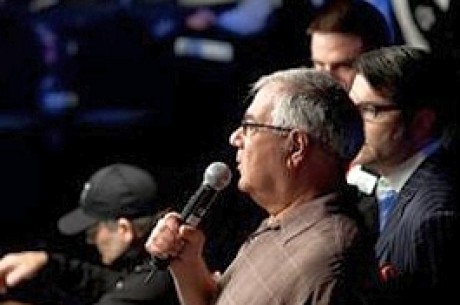Federally Regulated Online Gaming May Take Years to Materialize

It's time for people to lower their expectations about when licensed and regulated Internet poker will be available in the United States. It's not going to be this year. It probably won't be next year, but it will likely happen eventually �� at the government's pace.
Poker lobbyists and advocates such as the Poker Players Alliance and the Interactive Media Entertainment and Gaming Association have made a lot of progress with Congress, learning to play the political game and getting their message out to attract some influential allies.
However, when a group that has been largely apolitical appears on Capitol Hill for the first time, it takes awhile for its cause to be widely accepted and adopted.
"In the next 5-to-10 years, I'll be very surprised if there's not universally available and regulated access to iGaming in the U.S.," iMEGA chairman Joe Brennan Jr said. "But it's going to take time. Everyone wants this to move at Internet speed, but it will move at government speed."
The movement to legalize online poker might have made more progress this year if not for the nationwide economic crisis. Congressman Barney Frank (D-Mass.), poker's biggest supporter in the government, is also probably the busiest man on Capitol Hill at the moment. As head of the House Financial Services Committee, the country's financial issues need his attention. He wanted to hold a committee hearing on his Internet Gambling Regulation, Consumer Protection and Enforcement Act this year, but his focus has to be elsewhere.
Progress over the next year promises to be equally difficult.
The PPA's focus for the remainder of this session of Congress will be on delaying the Dec. 1 compliance date for the Unlawful Internet Gambling Enforcement Act. Any time Frank has for poker also will go to this more pressing issue.
In 2010, it will be an election year. Many Democrats who won their seats in the last election did so by narrow margins in usually conservative areas. Republicans hope to chop away at the Democratic Majority. It's unlikely that these Congressmen with tentative holds on their seats will support a controversial topic when it could be held against them in the campaign. No matter how unfair an allegation, no politician wants to face a television ad stating that he or she wants to make gambling available to children.
Perhaps an opportunity to make some headway in Congress might come in 2010 before re-election campaigns begin. However, it's likely some economic issues from this session of Congress will spill over to next year and, again, take precedent.
So, theoretically, we're now looking at 2011. And even when a licensing and regulation bill does go before a vote of the full Congress, it may take a few tries to get it through. The UIGEA didn't get through Congress until 2006, but its architects had been trying to pass anti-poker legislation for about 10 years.
While Internet poker awaits its time in Congress, movement could occur at the state level. Cash-strapped California briefly looked into intrastate online poker this year and could take a more serious look at it next year. If states begin to license and regulate online poker, that could influence Congress.
"If the states start getting into it and it takes off, that will show the need for federal legislation," Brennan said. "If I had to place a bet today on where it is going to start, my bet would be on the states, not on the federal government."
In the meantime, continued presence on Capitol Hill by poker lobbyists could keep the Department of Justice from going on the offensive against the game by showing that the country is headed in the direction of recognizing online poker's legitimacy.
- - - - - - - - - -
Brennan indicated that iMEGA isn't planning on following up on the U.S. 3rd Circuit Court of Appeals decision to uphold the UIGEA.
"At this time, we're not inclined to appeal to the Supreme Court," Brennan said. "We just don't feel we have a strong enough hand to be able to appeal this thing. The decision was on pretty narrow statute grounds."
Signing up for an online poker account is still easy and legal for players in most states. Check out our full list of online poker rooms and sign up today.








